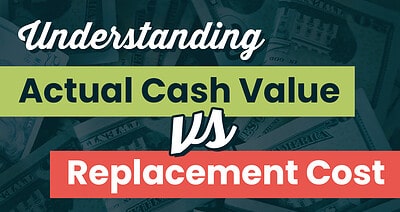
When Do You Need Home Insurance?
July 16, 2022
Share:
Purchasing home insurance is a no-brainer. Sure, in Canada, home insurance is not technically a requirement, but many homeowners choose to do it as a means to save themselves additional costs later down the line or because they have a mortgage and their lender requires it. Home insurance isn’t a luxury buy – for many families, it’s an important step and should be considered among your list of priorities.
You know you need home insurance. OK, great – but when do you buy it? Say you’re a first-time home buyer, and you’re overwhelmed with all the different choices you have to make. Maybe you’re working with a real estate agent and you’re going through open houses, viewing various homes for sale, and deciding what features you want for your new home. It’s a lot. It’s rewarding, sure, but stressful, and determining when to buy home insurance as part of all that can be icing on top of a not-so-fun cake.
Excalibur is here to lighten the load a little. Here’s the best time to purchase home insurance.
When is the “right time” to purchase home insurance?
Here’s the short answer: you’ll want to purchase home insurance before you close on your home. This is the best choice because, by securing your coverage early, you can guarantee your brand-new purchase is secure against potential catastrophe – even well before you’ve moved in. Note that insurance is not a surface-level purchase and is multi-faceted with different coverage options and different rates, and can come from a multitude of different vendors.
It’s also important to keep in mind that home insurance may be required if you are mortgaging your home. As a rule of thumb, a fair majority of financial institutions require a certain level of coverage (as well as potentially some specialized coverages) before they will agree to fund your property.
Now that you know when the best time is to purchase home insurance, perhaps it’s valuable to assess what makes a good home insurance policy and how to get it.
What do you look for when purchasing home insurance?
No one home insurance policy is created equal. A standard home insurance policy may include coverage for the destruction or damages to a property – both its interior and its exterior – the loss/theft of any contents within, and the family/homeowner’s personal liability for damages or injuries they may cause to others. That’s just the tip of the iceberg.
The first thing to note is that home insurance may come in three different levels of coverage. Those are actual cash value, replacement cost, and extended replacement value.
Actual cash value is all around the cheapest form of home insurance coverage, where your claims payment is based around the cost of purchasing items in a similar condition as to when you lost them. I..e., that six-year-old couch? It’s lost its luster over the years and may not be worth the $800 it was when you initially purchased it. Rather, you may receive $500 or $600 in claims payout to recoup it.
Replacement cost insurance is more expensive than actual cash value insurance and your claims will cover the lowest cost to restore the items to their original condition/cover the purchase of brand new items, likened to the ones you lost. There is no deduction for depreciation. If you lose your older TV, you will receive a claims payout to cover purchasing a new TV similar to the one that was lost.
Extended replacement cost covers the rebuild and/or replacement costs up to a predetermined percentage. It’s an add-on that is designed to cover any unexpected increases in construction/modification following an unexpected loss.
Once you’ve decided (or worked with a broker to decide), what else do you look for when purchasing home insurance? Remember that working with a broker, such as the ones here at Excalibur Insurance, is your best means to finding a policy that fits the bill.
You’ll want to keep in mind the following when purchasing home insurance:
- Rates
- Coverage options
- Deductible amounts
- Exclusions/coverage limits
- Separate riders
- Etc.
A broker can walk you through the process, rather than leaving you to do it alone. For instance, a broker may suggest that you extend the baseline liability of $100,000 to around $300,000, or even upward of $1,000,000 in some circumstances. Moreover, if you own a line of high-value possessions, such as fine jewellery (engagement rings average between $1,000 to $4,000) or art pieces, you’ll want to acquire a rider to cover those as well.
How are home insurance rates calculated?
Many homeowners want to save money, especially after making a huge purchase like the initial down payment on their new property. How are home insurance rates calculated? How do we get the best possible price? Home insurance rates may be driven by these forces:
- Your location
- Your insurance history
- Physical property size
- Physical property age
- Features of the home
- Proximity to fire stations, fire hydrants
- Proximity to the nearest body of water
- Claims history in your general area
- Coverage options
- Deductible amount
You might be surprised to know how much can impact your coverage. Your broker will ask you questions about your property – even what kind of roof you have (since your roof can impact your home insurance premiums!)
Once again, a broker is your best resource to have when it comes to reducing your costs. Always be upfront with your broker. A broker may have access to top-rated insurance markets that are not available to the general public and can give you advice on discounts, ways to reduce rates, and more to help you save money.
Excalibur Insurance can help you get lower home insurance rates without sacrificing comprehensive coverage. Get a free home insurance quote today to start.






